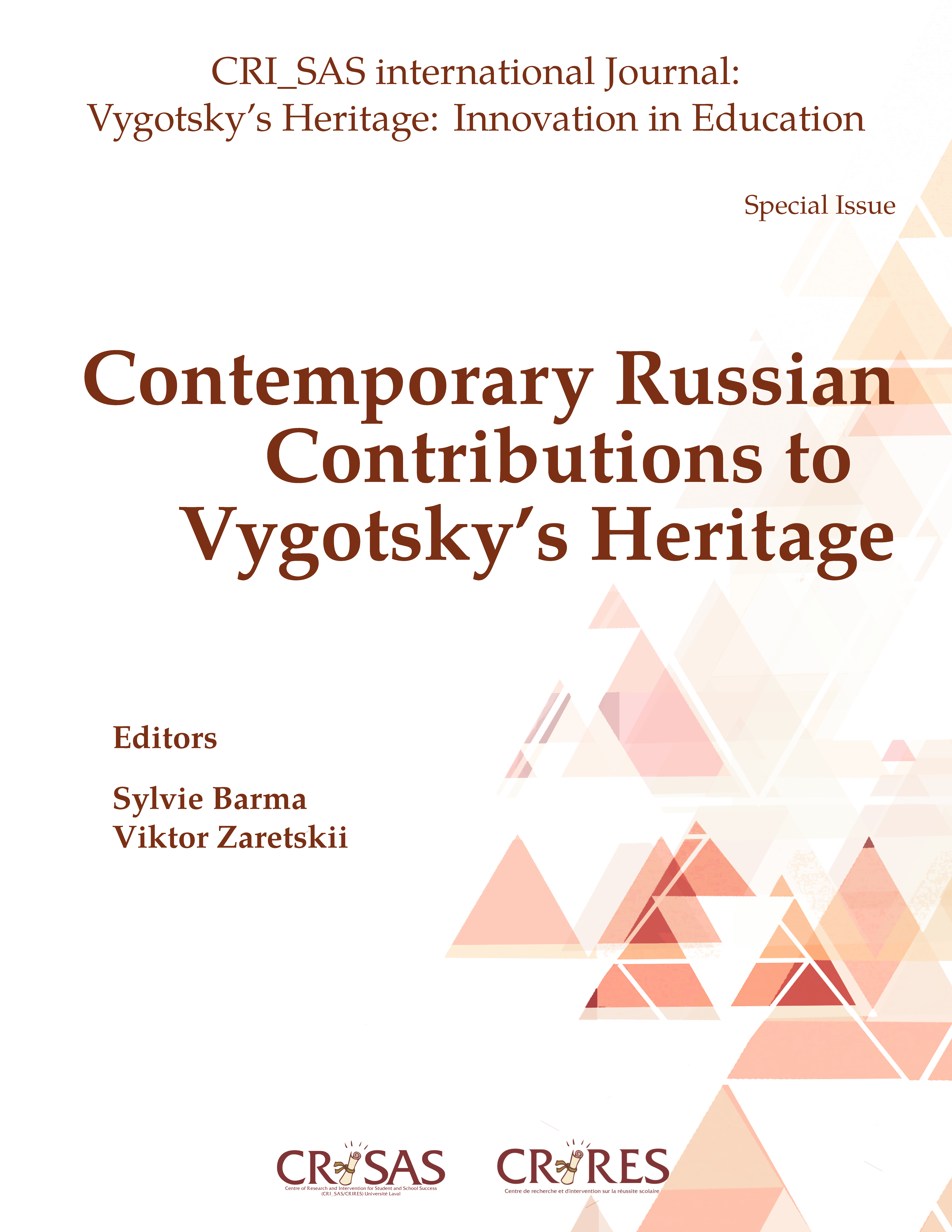The sense and the meaning of cultural-historical theory of L. S. Vygotsky
DOI:
https://doi.org/10.51657/ric.v4i1.40991Keywords:
Cultural-historical theory, L.S. Vygotsky, VolitionAbstract
L. S. Vygotsky’s principal idea, lying in the base of cultural-historical theory, is the primacy of sense over meaning. There are serious reasons to believe that this part of cultural-historical theory was not completely understood both by his disciples and his opponents. That’s why many Vygotsky’s conclusions and discoveries remained untapped. while others were implemented in science and practice quite di˙erently from what he suggested. Vygotsky once wrote that features of the particular science deeply related to its method. That’s why he introduced the experimental-genetic method (projective method in modern psychology), which allows modeling the processes of development. One of the basic concepts of cultural-historical theory is the concept of “cultural de-velopment”. A Cultural person, for Vygotsky, is the person, who can control not only their own behavior and actions but also their own psychic processes. On the one hand, modern psychology doesn’t deny the role of volition in child’s development. But on the other hand, the volition itself is typically understood as one’s ability to submit to laws and rules. More than that – it’s rather easy to create conditions where a person will submit to laws and rules, but it doesn’t develop his ability to control himself. In Vygotsky’s opinion, there are natural psychic functions, which in the process of learning transform into cultural ones. In this context, the main goal of learning is to create conditions for developing person’s ability to be the subject of his own behavior, activity and psychic.
References
Leont’ev, A. N. (1978). Activity, consciousness, and personality. Englewood Cliffs, NJ: Prentice-Hall.
Vygotsky, L. S. (1956). Problema obucheniya i umstvennogo razvitiya v shkol’nom vozraste [Issue of learning and mental development in school-aged children]. In Izbrannye psikhologicheskie issledovaniya [selected psychologicalworks] (pp. 438–452). Moscow: APNRSFSR Publisher.
Vygotsky, L. S. (1987a). Imagination and its development in childhood. In R. W. Rieber & A. S. Carton (Eds.), The collected works of L. S. V.ygotsky, Vol. 1: problems of general psychology. New York: Plenum Press.
Vygotsky, L. S. (1987b). Thinking and speech. In R. W. Rieber & A. S. Carton (Eds.), The collected works of L. S. V.ygotsky, Vol. 1: problems of general psychology. New York: Plenum Press.
Downloads
Published
Issue
Section
License
Copyright (c) 2017 Elena Kravtsova

This work is licensed under a Creative Commons Attribution-NonCommercial-NoDerivatives 4.0 International License.

